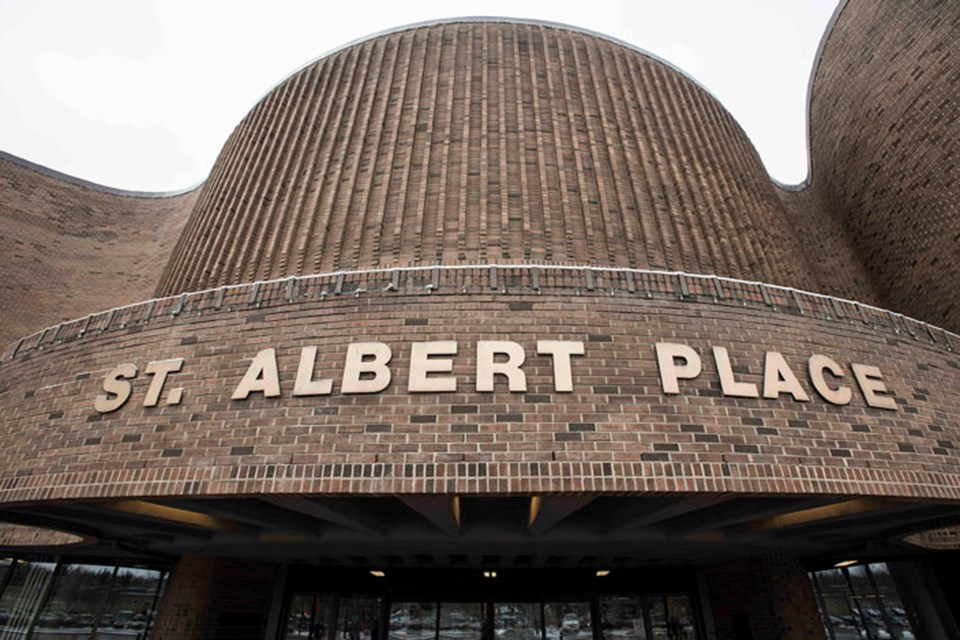One St. Albert councillor worries there is “no sign of an end” to the city's reconciliation efforts with Indigenous people, calling a truth and reconciliation report brought to council “politically correct.”
Council reviewed an engagement report on how the city can move forward with reconciliation efforts on Monday, which made 14 recommendations on topics such as governance, increased training opportunities and infrastructure.
Coun. Sheena Hughes objected to one of the recommendations that suggested hiring a full-time city staff member dedicated to a reconciliation portfolio, saying St. Albert is already in a tight budgeting season.
“The entire thing is timing, it’s politically correct, all of it is politically correct to bring it forward,” she said.
“What I’m not sure about when I see this plan is, it’s never going to end. We will never show there’s enough reconciliation.”
Hughes also said the city needs to take a hard look to make sure it is not just “doing a ton of political gestures” and pouring money in, as opposed to actually achieving the goals St. Albert intends to.
"We’re just pouring money into this plan with no sign of an end and no sign of saying we’re going to achieve the goal we want to achieve," she said.
Hughes did vote with the rest of her colleagues to recommend council accept the report as information, after hearing administration would be creating a prioritization list for the recommendations along with business cases for each one.
St. Albert launched its Payhonin Reconciliation project after a September 2017 motion in support of all 94 calls to action from Canada’s Truth and Reconciliation Commission (TRC).
Payhonin Reconciliation Circle lead consultant Leo Jacobs said in a presentation to council during their Sept. 9 governance, priorities and finance committee meeting St. Albert is not expected to fund reconciliation efforts 100 per cent.
“Reconciliation is going to be an ongoing journey but it’s not an ongoing financial journey,” he said. “This community can rise to be able to see reconciliation as being a norm within this community. A community of belonging is what is going to result.”
Before voting on three motions – to recommend city council receive the Payhonin report as information, adopt a land acknowledgment crafted by the Payhonin Reconciliation Circle and direct administration to bring back a prioritized implementation plan for the engagement report to council’s GPFC meeting in November – Hughes said having a prioritization list will be drawn up “is a bit more reassuring.”
“The key word I must have missed earlier is prioritization. With that, I feel comfortable voting in favour of all three,” she said.
“Gathering place”
Payhonin is a Cree word that means gathering place, and is the traditional word used to describe the valley St. Albert is in. It also has meaning that translates to “a place for something to happen.”
Over the course of its mandate, the Payhonin Reconciliation Circle engaged members of the community throughout late 2018 and early 2019, to bring forward actions related to truth, healing and reconciliation in St. Albert. Council approved $40,000 to engage a consultant on the project.
There were two residential schools in St. Albert, and the last one closed in 1968. That school later became the Poundmaker’s Lodge.
In late 2015, the federal Truth and Reconciliation Commission released its final report into the legacy of the residential school system, making 94 calls to action. They urged all levels of government – including municipalities – to make deliberate moves to repair some of the harm done by residential schools and move into a period of reconciliation.
While presenting the engagement report to council, Jacobs noted two per cent of survey respondents said relations between Indigenous and non-Indigenous people in St. Albert are “very negative.”
He added with “more awareness and exposure” he thinks that could be eliminated.
“We’re talking intergenerational, maybe 100 years of what was, and is still is, carried by some people, through a stereotype, through a prejudice,” he said.
The Payhonin Reconciliation Circle conducted surveys of residents and city staff from April to July this year, and received 178 responses. According to that survey, 58 per cent respondents said relations between Indigenous and non-Indigenous people were “somewhat positive.”
The engagement report also said the majority of Indigenous respondents had “negative experiences” in St. Albert.
After reviewing the report, Mayor Cathy Heron said a few of the recommendations are “no-brainers” and would be easily implemented. Those include consistently offering training for city staff and during council orientation, along with requesting nation-to-nation meetings with Indigenous organizations.
Council also agreed implementing a land acknowledgement suggested by the Payhonin Reconciliation Circle could be done right away.
Heron asked for clarification on the definition of “project-specific” under recommendation nine, that the city should seek input on project specific methods of dialogue with Indigenous communities before starting broader engagement.
“We do so many different projects that it might be cumbersome to do that dialogue with each one,” she said, giving the example of widening St. Albert Trail. “We need some parameters on that, so we don’t make a mistake.”
After extensive conversations, council unanimously passed all three recommendations. Coun. Nataly Joly said reconciliation does not end, and the city is already doing a lot towards reconciliation.
“We are doing a lot, and we care. I think reconciliation doesn’t end, but like Mr. Jacobs said, that doesn’t have to come with a capital costs associated with it,” she said. “It has to do with hearing the stories of people around us, listening and acknowledging how this land was and how it is and looking at those relationships.”




